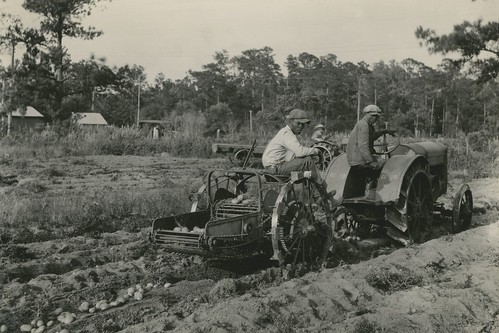Time for make it work for rural people, not Big Ag
By Jim Hightower, Jane Kleeb, Deborah Parker
Years ago, Robert Kennedy noted that progress is hard. “Progress is nice,” he said, “but its agent is change, and change has its enemies.”
Kennedy’s recognition that gutsy,
honest leadership is necessary to confront wealthy interests and advance the
common good directly applies to one of the most important Cabinet appointments
that Joe Biden will make: secretary of
agriculture.
This might surprise most people,
because the media and all recent presidents have dismissed agriculture as a
second-tier, low-visibility slot — one that is essentially “owned” by the
giants of industrial agribusiness.
Most of the time, the agriculture
secretary’s job has first and foremost been to keep these moneyed interests
content and in charge. This has grossly enriched faraway corporate executives
and investors, but it’s been disastrous for farm families, small town
residents, and rural vitality.
The great majority of rural
Americans — a diverse population of middle-class and low-income people — are
being crushed by Big Ag monopolies, Wall Street land speculators, joblessness,
and small business foreclosures.
Add to that a rural health care
crisis, weather calamities due to climate change, COVID-19, and the opioid
crisis, and you’ve got a Biblical-level plague.
It’s time for real change. And the
place to begin is with this low-profile office that actually has enormous tools
and resources to restore fairness and opportunity across America’s countryside,
uniting rural and urban people in a grassroots food system that enriches all.
But tools only work if you use them.
The U.S. Department of Agriculture,
created in 1862 by Abraham Lincoln to be what he called the “people’s
department,” has major anti-monopoly authority. It has its own banks, controls
huge rural development and housing programs, and runs the food stamp, school
lunch, and other nutrition programs.
It’s also responsible for food safety and pesticide regulations, directs the Forest Service and other conservation programs, and is mandated to serve consumers and the poor. The department wields a $151 billion annual budget and has some 100,000 employees and an office in every county in America.
Most importantly, the secretary has
broad authority to be a national advocate for the people against the corporate
plutocracy now controlling policy.
In other words, the Department of
Agriculture is a big office — if we dare to
use it.
Biden has promised to restore trust
that our federal government will serve the public interest rather than the
already wealthy and powerful. Here is a clear test of that promise.
Instead of recycling another
old-line agribusiness acolyte into USDA, we call on Biden to make a solid
progressive choice for secretary of agriculture — someone unencumbered by
financial or political ties to the status quo and willing to practice what Rep.
John Lewis called “getting into good trouble.”
Of the potential nominees that
President-elect Biden is said to be considering, we endorse Rep. Marcia Fudge
of Ohio as the best choice to take on the momentous task of redirecting the
work of this important public agency.
We see in her the potential to
become a necessary change agent, recognizing that the corporate control of
today’s food system is strangling the well-being and common good of rural and
urban America alike. People across the country have found Fudge to be both a
good listener and a strong voice on issues of fundamental fairness.
We believe she would be
well-positioned to rally family farmers, food industry workers, consumers,
rural communities, urban neighborhoods, and environmentalists in a common
effort to break the corporate stranglehold and turn USDA into the People’s
Department again.
Jim Hightower, Jane Kleeb, Deborah
Parker
Jim Hightower is a former Texas
agriculture commissioner from Austin, Texas. Jane Kleeb, of Lincoln, Nebraska,
is the chair of the Nebraska Democratic Party. Deborah Parker is an indigenous
activist from Tulalip, Washington. All three are board members of Our
Revolution.
This op-ed was distributed by
OtherWords.org. Neither OtherWords nor its publisher, the Institute for Policy
Studies, endorses candidates for public office.
